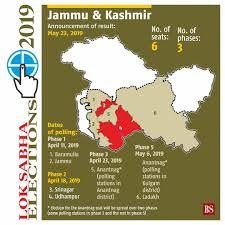
Elections to be held on October 24 for four Rajya Sabha seats in Jammu and Kashmir that have been vacant since 2021; Possibility of political earthquake?
New Delhi, September 24, 2025 (Special Correspondent):Amid the backdrop of the Lok Sabha and Assembly elections, the Election Commission has made an important announcement today. The Commission has announced that elections will be held on October 24 for four Rajya Sabha seats in Jammu and Kashmir. These seats have been vacant since 2021, and this election is likely to change the political equations in the Union Territory once again. After the abrogation of Article 370, this could be an important milestone on the political stage of Jammu and Kashmir, which is also expected to create waves in national politics.
According to the official announcement of the Election Commission, the notification for the elections for these four seats will be issued on October 6. The last date for filing nominations is October 13, while the last date for withdrawal of candidature is October 16. The voting process will be held on October 24, and the results will be declared on October 28. This election will be held with the participation of 90 members of the Legislative Council, including the members currently existing after the merger of the Legislative Assembly. The Election Commission has clarified that the process will be completely transparent and fair, and no political interference will be given priority.
Why did these four seats fall vacant? The answer lies in 2021. The term of the then members Mir Mohammad Fayaz, Shamsher Singh, Ghulam Nabi Azad and Nazir Ahmed Lave expired on February 15, 2021. After the abrogation of Article 370, the special status of Jammu and Kashmir ended, and the election process for Rajya Sabha members was stalled due to the reorganisation of the assembly. In the last four years, due to these seats remaining vacant, Jammu and Kashmir's representation in Parliament remained incomplete. Now this election will increase the parliamentary weight of the Union Territory, and help in more effective discussion on local issues in Parliament.
According to political analysts, this election will be a battle between the BJP-PDP-National Conference triangle. The BJP is likely to field strong candidates for these seats, while the Congress and local parties are also preparing to take advantage of this opportunity. The filling of seats by influential leaders like Ghulam Nabi Azad could also affect Muslim representation in the Kashmir Valley. In particular, this Rajya Sabha election, which is the first to be held after the abrogation of Article 370, will be a test of the success of the central government's Kashmir policy. Some analysts say that if this election is successful, it will strengthen the center-state relationship, while if it fails, it could intensify political disputes.
Along with this election, a by-election has also been announced for a Rajya Sabha seat in Punjab. Aam Aadmi Party (AAP) member Sanjeev Arora contested the Punjab Assembly election and resigned from the Rajya Sabha after winning. His term was till April 9, 2028, but now this seat will be filled on October 24. This by-election in Punjab will be important for AAP and other opposition parties, as it is taking place in the backdrop of the assembly elections.
If we look at the history of this election in Jammu and Kashmir, in 2019, the assembly elections were held for the first time after the abrogation of Article 370, in which the BJP and its allies won the majority. However, the composition of the Legislative Council for the election of Rajya Sabha members is still not complete. The Election Commission has said that special guidelines will be issued for this process, which will include the voting pattern of the Legislative Council members. The announcement has been welcomed by local political leaders, with some calling it a 'restoration of democracy'.
The elections are also generating enthusiasm among young voters in Jammu and Kashmir. Several organizations and civic forums have demanded a transparent process for the selection of candidates. Also, the Election Commission has announced special security arrangements in view of the security situation in Kashmir. If this election is successful, four new members of Jammu and Kashmir in Parliament will be able to speak on issues of development, tourism and security of the state.
Overall, this election is not just a political event, but is related to the future of Jammu and Kashmir. This decision of the Election Commission will revive the democratic process, and a new chapter will begin in national politics. In the next few weeks, the movement of political parties for this election will intensify, and it will be the subject of political discussion from the national capital to Kashmir.
New Delhi, September 24, 2025 (Special Correspondent):Amid the backdrop of the Lok Sabha and Assembly elections, the Election Commission has made an important announcement today. The Commission has announced that elections will be held on October 24 for four Rajya Sabha seats in Jammu and Kashmir. These seats have been vacant since 2021, and this election is likely to change the political equations in the Union Territory once again. After the abrogation of Article 370, this could be an important milestone on the political stage of Jammu and Kashmir, which is also expected to create waves in national politics.
According to the official announcement of the Election Commission, the notification for the elections for these four seats will be issued on October 6. The last date for filing nominations is October 13, while the last date for withdrawal of candidature is October 16. The voting process will be held on October 24, and the results will be declared on October 28. This election will be held with the participation of 90 members of the Legislative Council, including the members currently existing after the merger of the Legislative Assembly. The Election Commission has clarified that the process will be completely transparent and fair, and no political interference will be given priority.
Why did these four seats fall vacant? The answer lies in 2021. The term of the then members Mir Mohammad Fayaz, Shamsher Singh, Ghulam Nabi Azad and Nazir Ahmed Lave expired on February 15, 2021. After the abrogation of Article 370, the special status of Jammu and Kashmir ended, and the election process for Rajya Sabha members was stalled due to the reorganisation of the assembly. In the last four years, due to these seats remaining vacant, Jammu and Kashmir's representation in Parliament remained incomplete. Now this election will increase the parliamentary weight of the Union Territory, and help in more effective discussion on local issues in Parliament.
According to political analysts, this election will be a battle between the BJP-PDP-National Conference triangle. The BJP is likely to field strong candidates for these seats, while the Congress and local parties are also preparing to take advantage of this opportunity. The filling of seats by influential leaders like Ghulam Nabi Azad could also affect Muslim representation in the Kashmir Valley. In particular, this Rajya Sabha election, which is the first to be held after the abrogation of Article 370, will be a test of the success of the central government's Kashmir policy. Some analysts say that if this election is successful, it will strengthen the center-state relationship, while if it fails, it could intensify political disputes.
Along with this election, a by-election has also been announced for a Rajya Sabha seat in Punjab. Aam Aadmi Party (AAP) member Sanjeev Arora contested the Punjab Assembly election and resigned from the Rajya Sabha after winning. His term was till April 9, 2028, but now this seat will be filled on October 24. This by-election in Punjab will be important for AAP and other opposition parties, as it is taking place in the backdrop of the assembly elections.
If we look at the history of this election in Jammu and Kashmir, in 2019, the assembly elections were held for the first time after the abrogation of Article 370, in which the BJP and its allies won the majority. However, the composition of the Legislative Council for the election of Rajya Sabha members is still not complete. The Election Commission has said that special guidelines will be issued for this process, which will include the voting pattern of the Legislative Council members. The announcement has been welcomed by local political leaders, with some calling it a 'restoration of democracy'.
The elections are also generating enthusiasm among young voters in Jammu and Kashmir. Several organizations and civic forums have demanded a transparent process for the selection of candidates. Also, the Election Commission has announced special security arrangements in view of the security situation in Kashmir. If this election is successful, four new members of Jammu and Kashmir in Parliament will be able to speak on issues of development, tourism and security of the state.
Overall, this election is not just a political event, but is related to the future of Jammu and Kashmir. This decision of the Election Commission will revive the democratic process, and a new chapter will begin in national politics. In the next few weeks, the movement of political parties for this election will intensify, and it will be the subject of political discussion from the national capital to Kashmir.
According to the official announcement of the Election Commission, the notification for the elections for these four seats will be issued on October 6. The last date for filing nominations is October 13, while the last date for withdrawal of candidature is October 16. The voting process will be held on October 24, and the results will be declared on October 28. This election will be held with the participation of 90 members of the Legislative Council, including the members currently existing after the merger of the Legislative Assembly. The Election Commission has clarified that the process will be completely transparent and fair, and no political interference will be given priority.
Why did these four seats fall vacant? The answer lies in 2021. The term of the then members Mir Mohammad Fayaz, Shamsher Singh, Ghulam Nabi Azad and Nazir Ahmed Lave expired on February 15, 2021. After the abrogation of Article 370, the special status of Jammu and Kashmir ended, and the election process for Rajya Sabha members was stalled due to the reorganisation of the assembly. In the last four years, due to these seats remaining vacant, Jammu and Kashmir's representation in Parliament remained incomplete. Now this election will increase the parliamentary weight of the Union Territory, and help in more effective discussion on local issues in Parliament.
According to political analysts, this election will be a battle between the BJP-PDP-National Conference triangle. The BJP is likely to field strong candidates for these seats, while the Congress and local parties are also preparing to take advantage of this opportunity. The filling of seats by influential leaders like Ghulam Nabi Azad could also affect Muslim representation in the Kashmir Valley. In particular, this Rajya Sabha election, which is the first to be held after the abrogation of Article 370, will be a test of the success of the central government's Kashmir policy. Some analysts say that if this election is successful, it will strengthen the center-state relationship, while if it fails, it could intensify political disputes.
Along with this election, a by-election has also been announced for a Rajya Sabha seat in Punjab. Aam Aadmi Party (AAP) member Sanjeev Arora contested the Punjab Assembly election and resigned from the Rajya Sabha after winning. His term was till April 9, 2028, but now this seat will be filled on October 24. This by-election in Punjab will be important for AAP and other opposition parties, as it is taking place in the backdrop of the assembly elections.
If we look at the history of this election in Jammu and Kashmir, in 2019, the assembly elections were held for the first time after the abrogation of Article 370, in which the BJP and its allies won the majority. However, the composition of the Legislative Council for the election of Rajya Sabha members is still not complete. The Election Commission has said that special guidelines will be issued for this process, which will include the voting pattern of the Legislative Council members. The announcement has been welcomed by local political leaders, with some calling it a 'restoration of democracy'.
The elections are also generating enthusiasm among young voters in Jammu and Kashmir. Several organizations and civic forums have demanded a transparent process for the selection of candidates. Also, the Election Commission has announced special security arrangements in view of the security situation in Kashmir. If this election is successful, four new members of Jammu and Kashmir in Parliament will be able to speak on issues of development, tourism and security of the state.
Overall, this election is not just a political event, but is related to the future of Jammu and Kashmir. This decision of the Election Commission will revive the democratic process, and a new chapter will begin in national politics. In the next few weeks, the movement of political parties for this election will intensify, and it will be the subject of political discussion from the national capital to Kashmir.

.jpg)






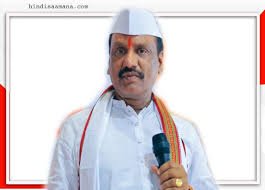

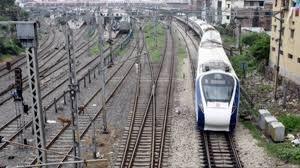
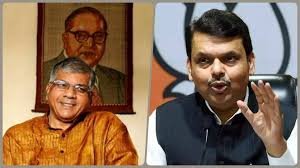
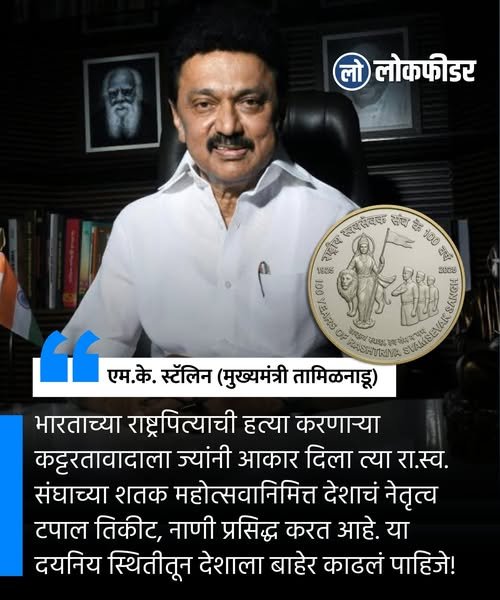
.jpg)
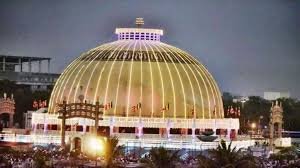
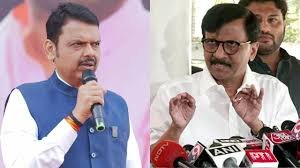
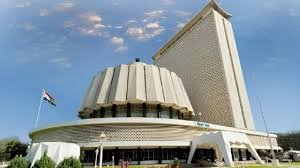
.png)
